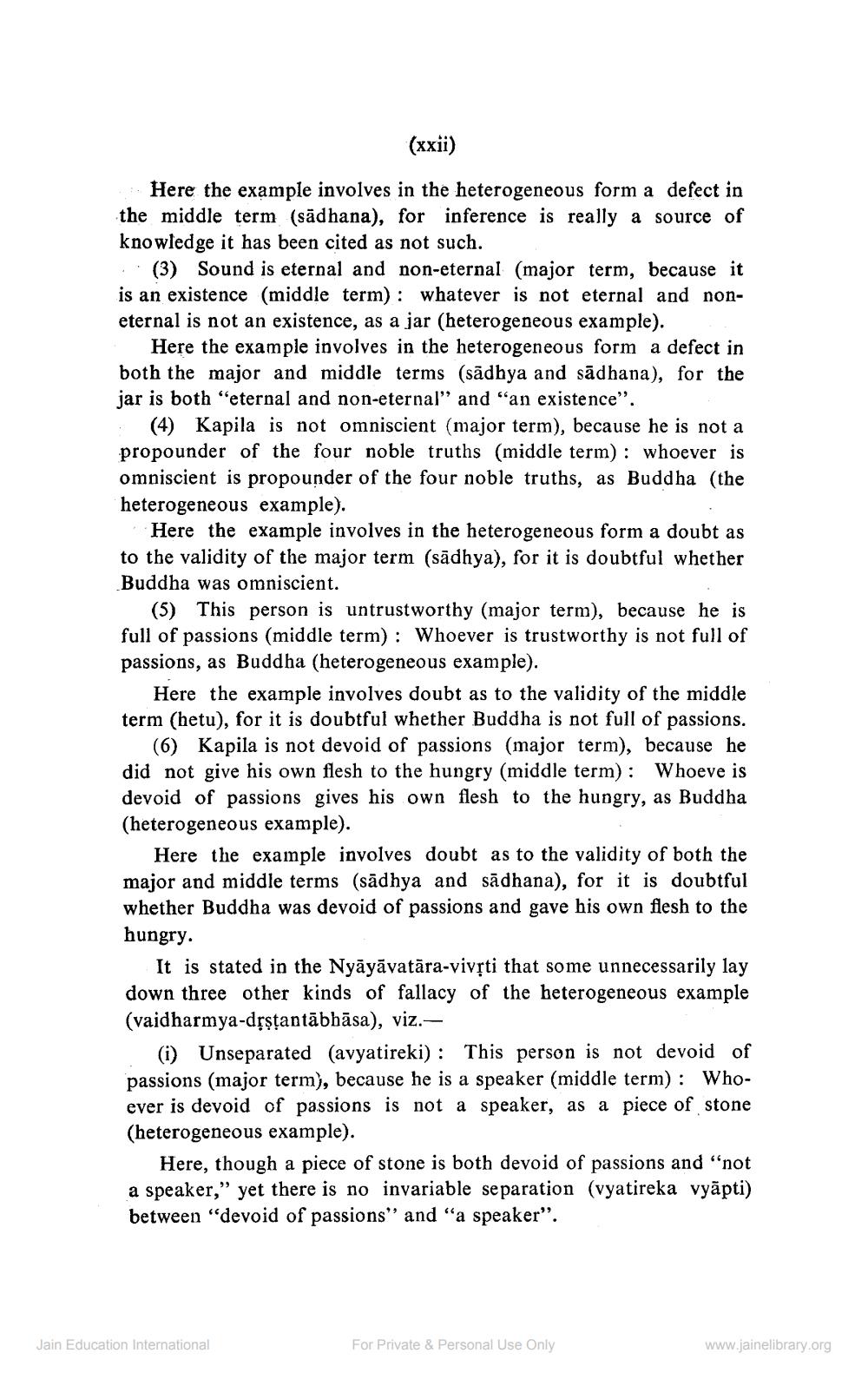________________
(xxii)
Here the example involves in the heterogeneous form a defect in the middle term (sadhana), for inference is really a source of knowledge it has been cited as not such.
(3) Sound is eternal and non-eternal (major term, because it is an existence (middle term): whatever is not eternal and noneternal is not an existence, as a jar (heterogeneous example).
Here the example involves in the heterogeneous form a defect in both the major and middle terms (sādhya and sadhana), for the jar is both "eternal and non-eternal" and "an existence".
(4) Kapila is not omniscient (major term), because he not a propounder of the four noble truths (middle term): whoever is omniscient is propounder of the four noble truths, as Buddha (the heterogeneous example).
Here the example involves in the heterogeneous form a doubt as to the validity of the major term (sadhya), for it is doubtful whether Buddha was omniscient.
(5) This person is untrustworthy (major term), because he is full of passions (middle term): Whoever is trustworthy is not full of passions, as Buddha (heterogeneous example).
Here the example involves doubt as to the validity of the middle term (hetu), for it is doubtful whether Buddha is not full of passions.
(6) Kapila is not devoid of passions (major term), because he did not give his own flesh to the hungry (middle term): Whoeve is devoid of passions gives his own flesh to the hungry, as Buddha (heterogeneous example).
Here the example involves doubt as to the validity of both the major and middle terms (sādhya and sadhana), for it is doubtful whether Buddha was devoid of passions and gave his own flesh to the hungry.
It is stated in the Nyāyāvatara-vivṛti that some unnecessarily lay down three other kinds of fallacy of the heterogeneous example (vaidharmya-dṛṣṭantābhāsa), viz.
(i) Unseparated (avyatireki): This person is not devoid of passions (major term), because he is a speaker (middle term) : Whoever is devoid of passions is not a speaker, as a piece of stone (heterogeneous example).
Here, though a piece of stone is both devoid of passions and "not a speaker," yet there is no invariable separation (vyatireka vyāpti) between "devoid of passions" and "a speaker".
Jain Education International
For Private & Personal Use Only
www.jainelibrary.org




